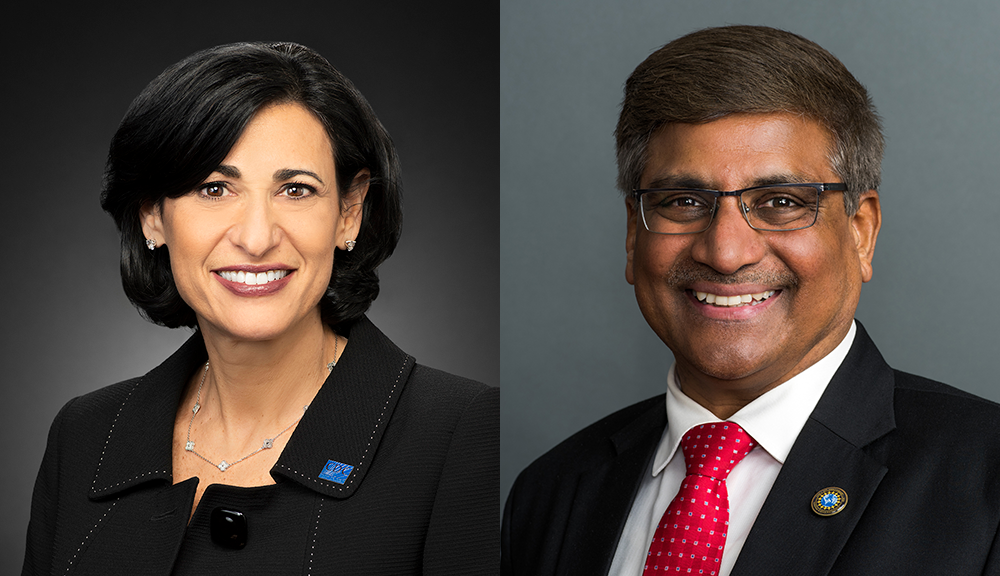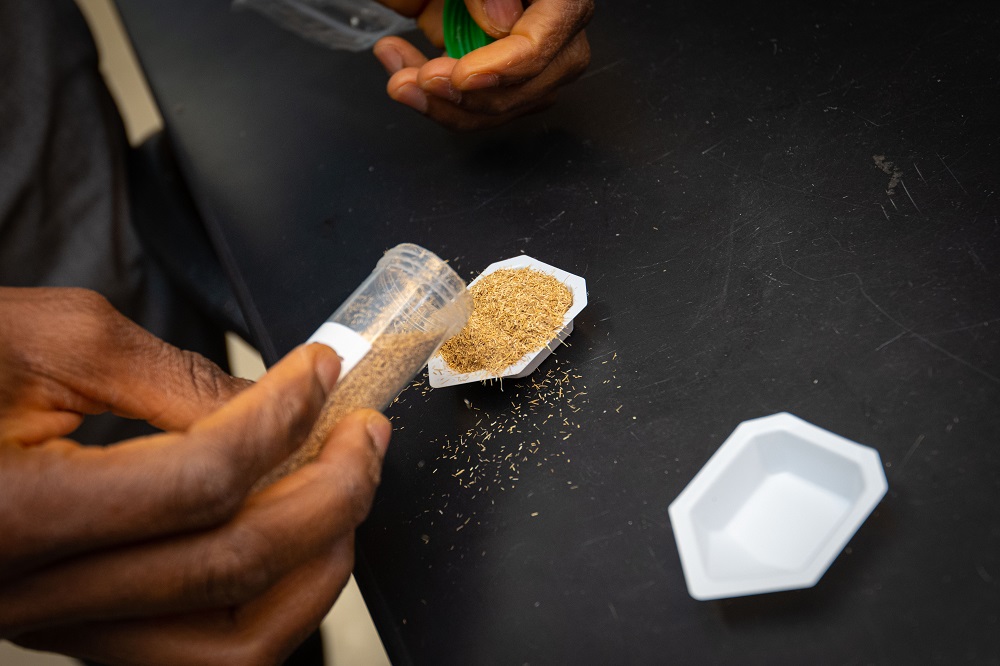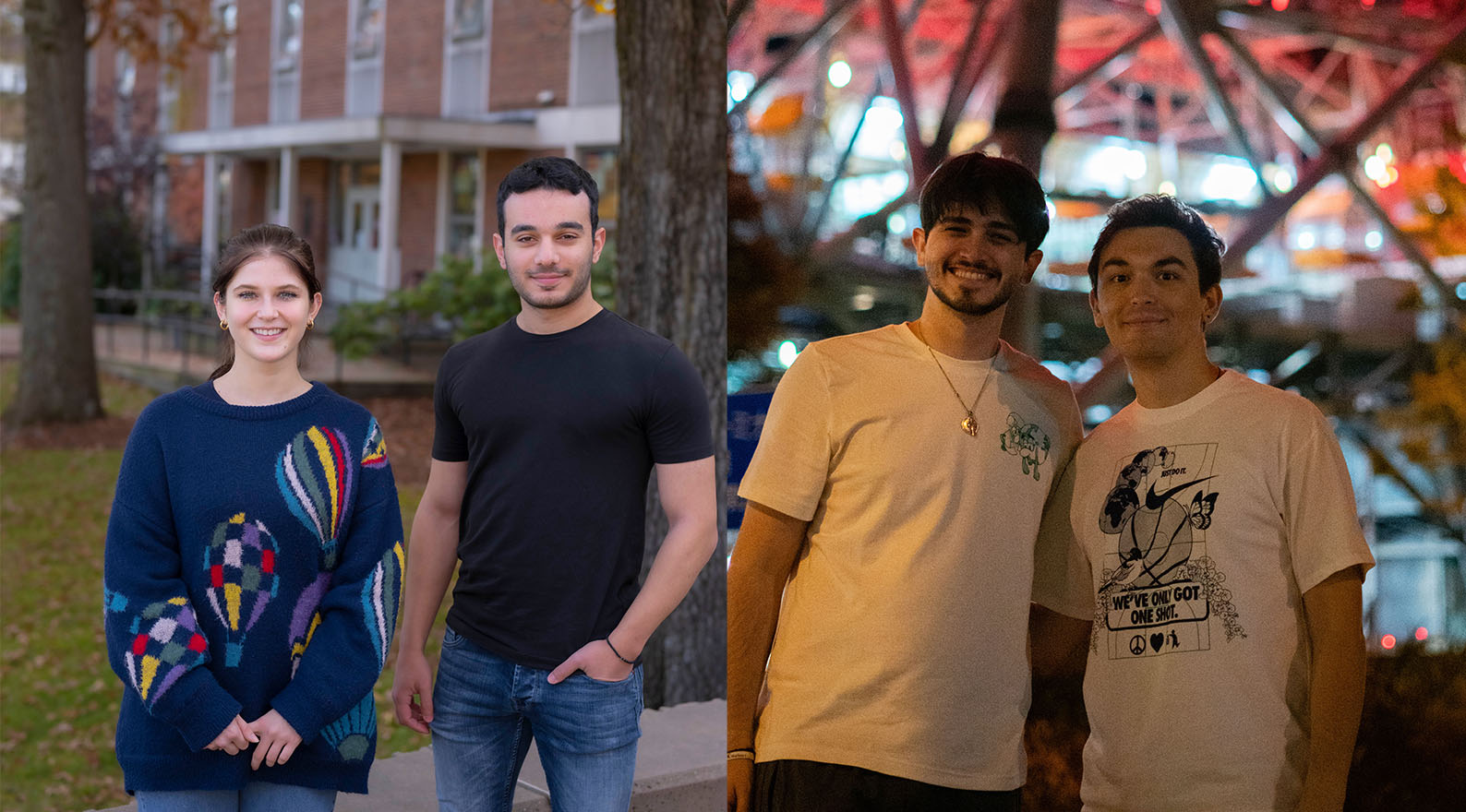Students behind the winning projects of Worcester Polytechnic Institute’s (WPI) "Great Problems Seminars" poster presentation competition targeted real global problems like Alzheimer’s disease, high HIV/AIDS and malnutrition rates in Nigeria, water shortages in developing countries, and retrofitting old buildings for energy efficiency. They were among the more than 150 first-year students who participated in the seminars this past fall, researching projects that tackled some of the world’s most important concerns. The students presented their work Dec. 14, 2009 at WPI. Following their poster presentations, General Electric (GE) Foundation President and Chairman Bob Corcoran spoke to students, faculty, and staff, telling them he believes WPI "develops students who go out into the world to solve real, important problems."
The Great Problems Seminars prepare WPI’s first-year students for the university’s project-driven curriculum and serve as an introduction to university-level research. They take problem solving out of the textbook and into the real world by focusing students on themes of global importance, including societal problems and human needs. The seminars were launched three years ago and are supported by a generous gift from Eric Hahn ’80 and the Hahn Family Trust. This year, students concentrated on three areas of "Great Problems." The poster presentation winners in each seminar are below each seminar theme:
- Power the World: Focused on both the engineering and social aspects of energy applications.
- "Atwater Kent Efficiency Plan," by Brennan Ashton, Alex Bean, David Knight, and Kristen Nich. Located on the WPI campus, Atwater Kent Hall is an older building containing a variety of facilities that contribute to substantial energy consumption. The students proposed a plan to reduce this load through the installation of higher-efficiency fixtures, which would result in a reduction in operational costs.
- Grand Challenges: Focused on major engineering challenges in the 21st century, including energy, transportation, housing, food distribution, recycling, and health care.
- "The WAVE: Water Vapor Condenser,"by Shawna Brierly, Bianca Castagna, Ryan Kimmel, and Daniel Miller. In order to address water shortages in developing countries, the group designed two water vapor condenser models, the "Refrigerator Style Model" and the "Metal Nalgene Bottle Model." Both designs condense water vapor from the air and produce clean, potable water.
- Heal the World: Focused on the biology of infectious disease and the management of disease control.
- "Alzheimer’s Disease Screening," by Emily Domingue, Joseph Everett, Heather Parker, and Rebecca Sharpe. The students proposed developing a plan for the screening of Alzheimer’s disease, because a widespread screening system for the disease would result in the earlier treatment of patients and possibly a decrease in the mortality rate.
-- and --
-
- "Health Clinics – Saving Two Birds with One Stone," by Ivy Castro, Olivia Doane, Claudia Lee, Shelbye Schlange, Justin Siemian, and Dan Topping. Recognizing the need to reduce the number of cases of malnutrition and HIV/AIDS in Nigeria, the students proposed developing a non-profit health clinic that reduces those cases through education, testing, and treatments; a successful model of the clinic could be replicated in other regions to further reduce these rates.
Following the poster presentations, Corcoran praised WPI’s First Year Experience. "I firmly believe that WPI’s Great Problems Seminars should be part of the university’s core curriculum," emphasized Corcoran, who is also GE’s vice president of corporate citizenship. "WPI was ahead of the game 40 years ago with the establishment of the WPI Plan [the university’s revolutionary approach to undergraduate education that combines theoretical study with project-based problem solving around the world]. And now, WPI is leading the way again with the Great Problems Seminars."
Corcoran talked about the important work WPI students are doing and the critical role that science, technology, engineering, and innovation play in helping to solve some of the world’s biggest issues, such as health care, water availability and purity, energy availability, protecting the environment, and world hunger. He challenged the students to find the solutions to those critical global problems in the decade ahead.
"Basically, my generation has failed your generation," Corcoran told the students. "You have a lot to do to make up what we did not get to finish. That’s your challenge as you move forward. It falls upon your shoulders. The cost of not solving these problems will be huge to us."
WPI President and CEO Dennis D. Berkey noted that the Great Problems Seminars program fits "superbly into WPI’s mainstream, living tradition of preparing students to make a real difference in the world. The work we’ve seen at this year’s poster presentations is completely reflective of WPI’s mission. I’m so very proud of what these students have accomplished."
In his roles at GE and the GE Foundation, Corcoran is responsible for GE’s global citizenship activities and reporting; philanthropic activities, which include public education, community building, and disaster relief; and volunteerism initiatives throughout the company. The relationship between GE and WPI is longstanding. Historically a top employer of WPI graduates, this year GE named WPI its "Top Producer of Company Talent"" selecting the university from among its 40 "Executive Schools" for its GE Partnership Award. According to GE, Executive Schools are a highly select group of colleges and universities chosen for their ability to develop talent and aid in employee placement within the company. GE employs more than 360 WPI alumni.
"Bob Corcoran’s endorsement of WPI’s Great Problems Seminars underscores the excellent work that our faculty and students have done in this growing and important program," said President Berkey.


